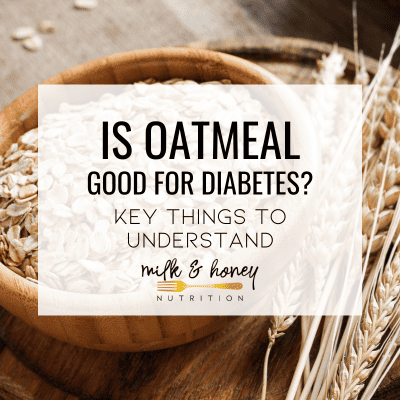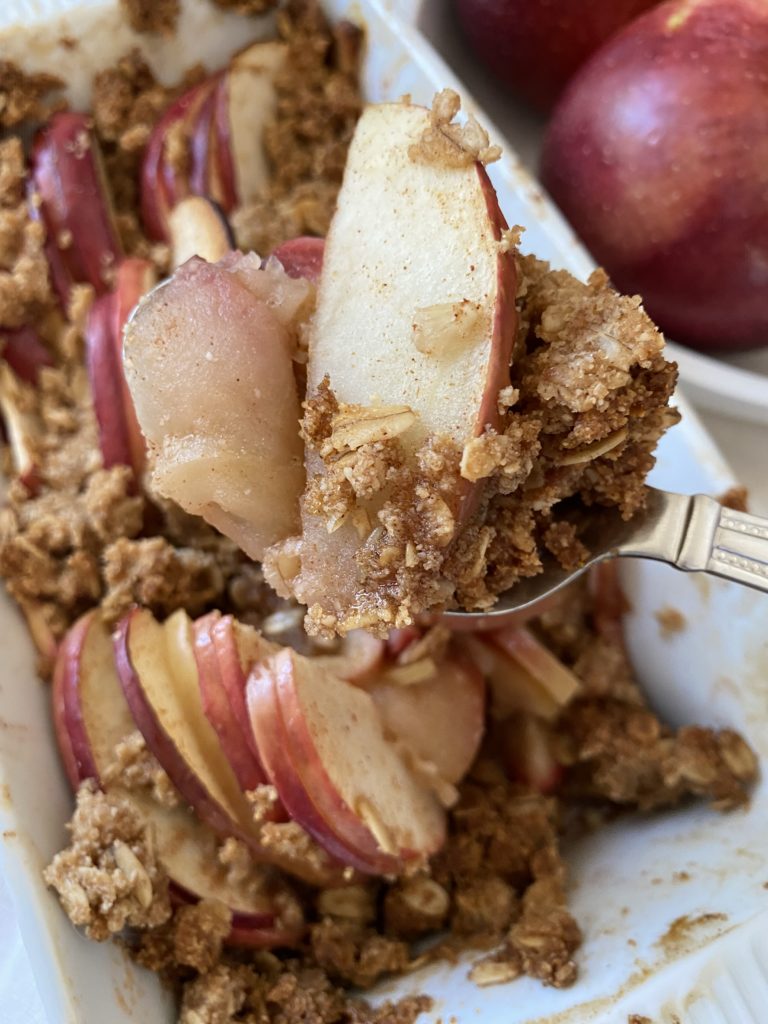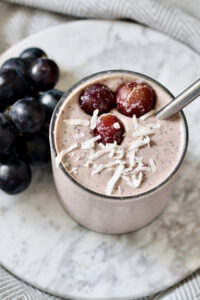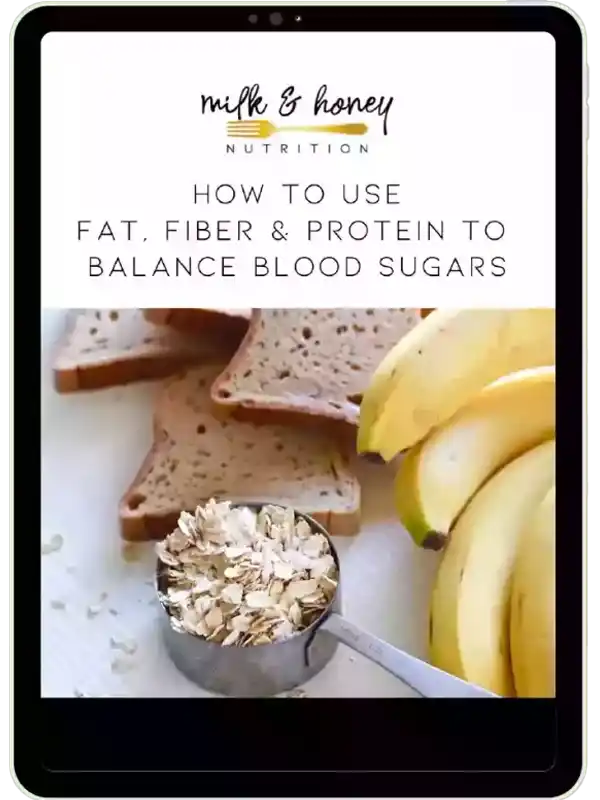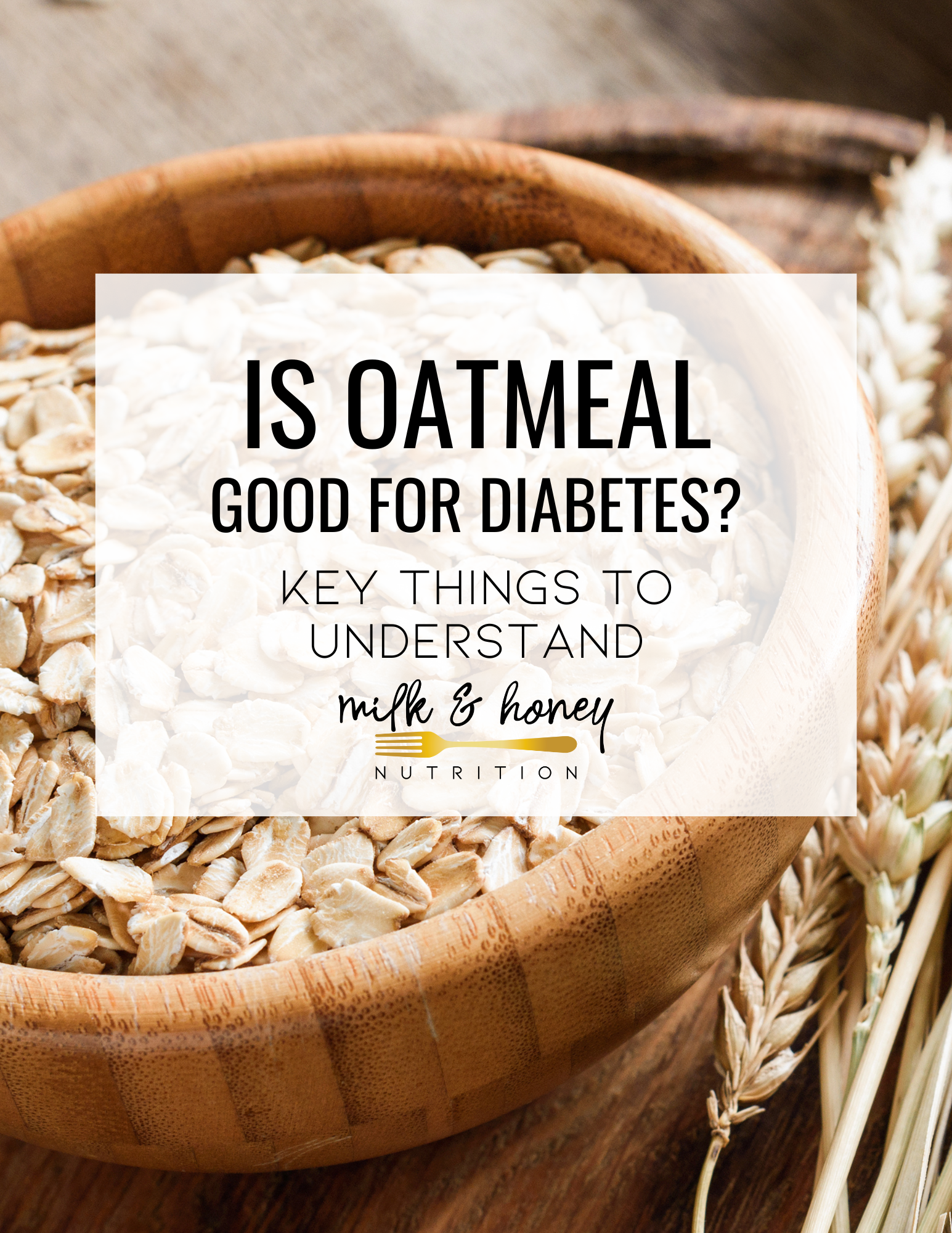
In this article, we’ll discuss the benefits of oatmeal, is oatmeal good for diabetes, and easy recipes using oats.
Oatmeal may not seem like the most exciting food to some, but it’s chock full of nutrients and also super versatile. So let’s answer, is oatmeal good for diabetes and ways to use it!
What’s the difference between oats and oatmeal?
Oats typically refer to the whole grain itself while oatmeal describes the hot porridge dish made using processed oats. That’s why you’ll often hear “oat flour” instead of “oatmeal flour,” since oat flour is simply finely ground oats. For the purpose of this article, we’ll use these terms interchangeably.
Oats nutrition
As a dietitian living with diabetes, I absolutely love oats! And because of this, I use them all the time in my recipes. Oats take the title as one of my favorite ingredients. Since they’re full of both insoluble and soluble fiber, B vitamins, and minerals, they make a great blood sugar friendly food. Specifically, oats contain beta-glucan fiber, which helps overall gut health and blood sugar from rising rapidly. Other nutrients found in oats (and how they benefit our bodies) include:
- Phosphorus: Supports bone health and metabolism.
- Thiamine: Plays an important role in our nervous system and metabolism.
- Magnesium: An important mineral used for energy and muscle function.
- Zinc: Supports the immune system and cell growth.
- Fiber: Helps reduce cholesterol levels and helps you feel full.
- Antioxidants: Plant-compounds that reduce cell damage and overall risk of some cancers.
Oats nutrition facts
| Serving Size | ½ cup, dry rolled oats |
| Calories | 150 kcal |
| Total Carbohydrate | 27 g |
| Dietary Fiber | 4 g |
| Soluble Fiber | 2 g |
| Protein | 5 g |
| Total Fat | 3 g |
| Sodium | 0 mg |
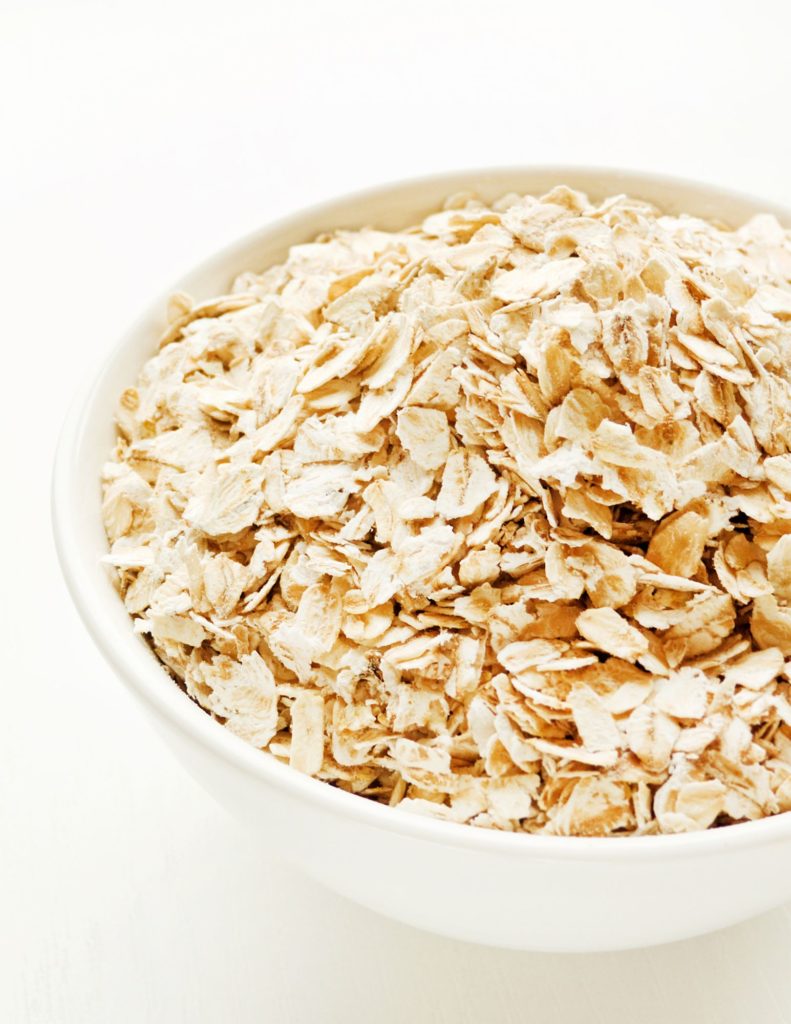
Different types of oats
When you go to the cereal aisle looking for oats, you’ll most likely see tons of options. From steel cut oats to flavored instant oat packets, there are definitely a ton of choices out there. The question is, what’s the difference? And what’s best for you?
Oats are typically categorized by the type and level of processing they go through. This impacts their texture and cooking time.
- Groats: Whole-grain oat kernels. Groats are the most whole form of oats. It takes the longest to cook and has a tougher texture than typical oatmeal, but provides a delicious, nutty flavor.
- Steel cut oats (Irish oats): Steel cut oats get cut with steel blades into smaller pieces. They tend to be a little chewier than rolled oats, but less tough in texture.
- Scottish oats: Scottish oats are groats that have been slightly ground up. They aren’t as popular as its Irish cousin, but are delicious and perfect for porridge.
- Rolled oats (Old-fashioned oats): Rolled oats are probably the most common and versatile form of oats. They’re made by steaming the groat and are then rolled flat.
- Quick oats: These get rolled flatter than old-fashioned oats or cut into smaller pieces. True to its name, they cook quickly and have a softer, mushy texture compared to rolled oats.
- Instant oats: Instant oats are similar to quick oats, but are pre-cooked and dried before chopping into small pieces.
- Oat bran: While not technically a type of oat, the bran makes up the layer under the hull that contains the fiber, vitamins, and minerals of the oat kernel.
- Oat flour: These are rolled oats ground finely into flour. It’s perfect for baking.
Oatmeal and diabetes
Oatmeal, while a carb-rich food, is actually a great food to include in your diet if you have diabetes. Normally when people with diabetes eat high-carb foods, it’s a common concern that they will rapidly raise blood sugars. Oats are a little different though. The beta-glucan fiber mentioned earlier helps to slow down digestion, which helps prevent those unwanted blood sugar spikes. Not only do they have all those amazing nutrients from before, but they’re also low in simple carbs and saturated fat. This makes it a great food to help manage your blood sugars.
Oatmeal and the glycemic index
Glycemic index (GI) refers to a given value of a food based on how quickly certain foods are processed in the body and raise blood sugar. A higher GI number means it raises blood sugar quicker than a food with a lower number.
Typically, the more processed oats are, the higher the GI number is. You can also compare it to how long it takes to cook. If the oats don’t take much time to cook, you can assume it’ll take less time to digest, potentially increasing blood sugar faster. This is because cooking time is directly related to how processed the oats are.
Rolled oats have a glycemic index of 55 making them a low GI food.
Can people with diabetes eat oatmeal?
Yes. Most people with diabetes can fit any food into a well-balanced diet, including oatmeal. However, even with the high fiber content of oatmeal, adding other foods to oatmeal can increase the nutritional value and better support blood sugars. Usually, most people don’t eat plain oatmeal. Often mix-ins, like nuts and milk, get added to boost the protein and fat content in the oatmeal. These ingredients can be diabetes–friendly and will also result in tastier oatmeal!
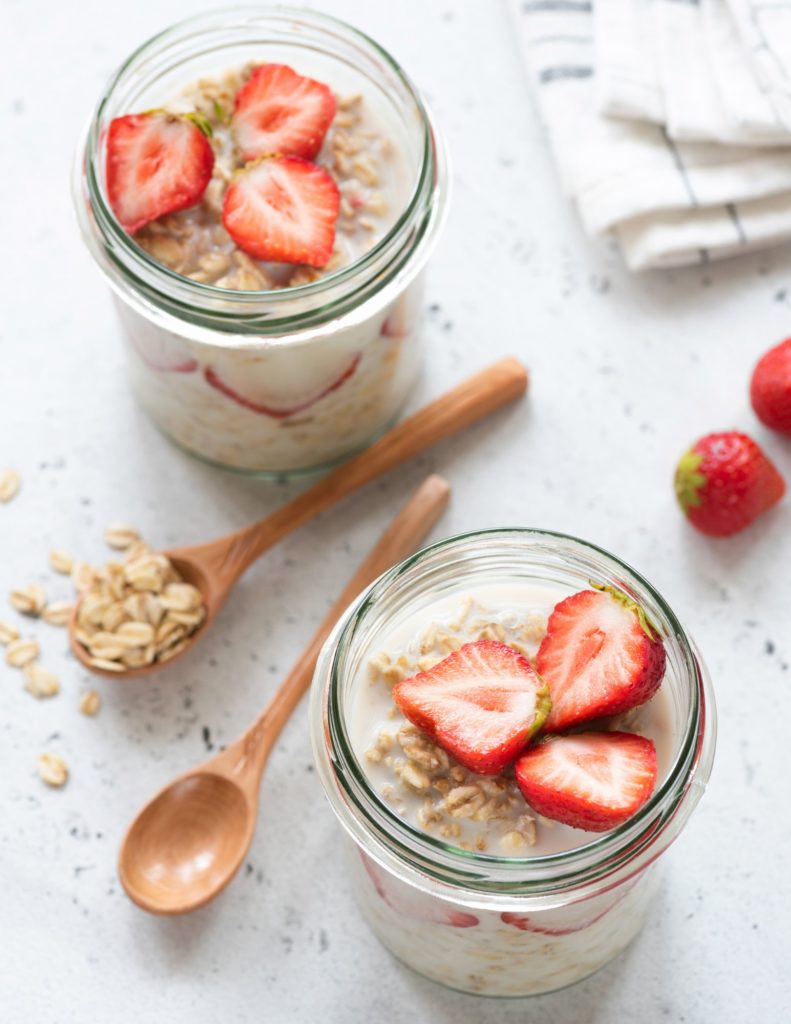
Does oatmeal raise blood sugar?
Yes. Oatmeal contains carbohydrates and will raise blood sugar after you eat it. The type of oat, how you cook it, and what you eat with it will affect how quickly it can raise your blood sugar.
Does oatmeal spike blood sugar?
Possibly. But, as mentioned before, it depends. Instant oatmeal packets with large amounts of added sugar will most likely cause undesired blood sugar spikes. But, oatmeal made with rolled oats, peanut butter, and protein powder is less likely to cause blood sugar spikes. In general, using less processed oats and adding protein and healthy fats will make oatmeal more diabetes-friendly.
Click here to download a free e-book about how to balance blood sugar with fat, fiber, and protein!
Is oatmeal bad for diabetes?
Usually, no. However, some oatmeal options, have more added sugar than we’d like and may spike blood sugar levels. And, these are usually the instant oatmeal packets you find pre-packaged at the store. While they’re convenient and quick to make, they usually contain a lot of added sugar and other additives that aren’t the best for blood sugar control.
Is oatmeal good for type 2 diabetes?
Oatmeal makes a great food choice for type 2 diabetes. Not only does it help control blood sugar, it also has heart health benefits.
Have you ever noticed red hearts on oatmeal containers? That’s because many studies have shown an association between oat fiber and lower cholesterol levels. Because heart health’s importance in type 2 diabetes management, oatmeal may be a great food to help your body.
And, if the fiber in oats helps blood sugar management and lower cholesterol levels, what else does it do? If you’ve noticed the way oatmeal expands in water, that’s exactly what it’s doing in our bodies. Since they’re rich in soluble fiber, oats become thick when mixed with water and digests slower as a result. This helps keep you full for longer, making it a great food for appetite regulation and satisfaction.
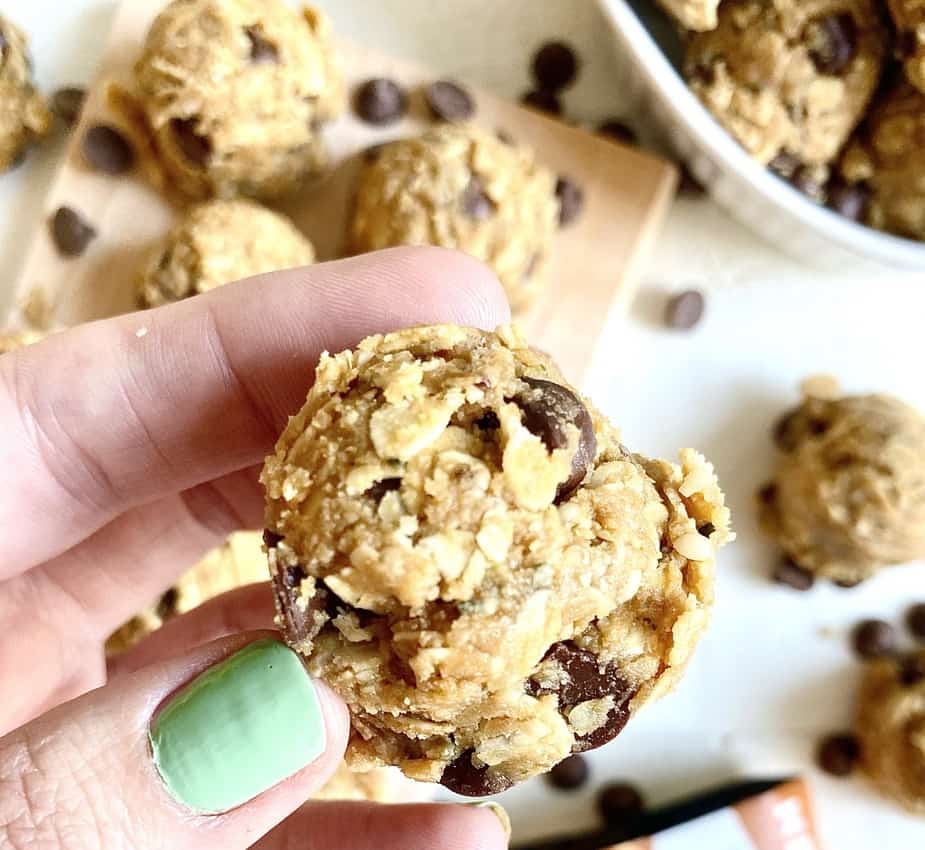
Which oatmeal is best for diabetes?
All types of oats can be enjoyed by people with diabetes. But, which one is the best? As a dietitian living with diabetes myself, I prefer you focus on what you’re eating with your oatmeal rather than the specific type of oats. Use the following tips to help make your oatmeal as diabetes-friendly as possible:
- Choose a less processed form of oats. (Rolled oats, Steel-cut oats, Groats)
- Consider the preparation method. Uncooked oats, like overnight oats or raw oat flour in protein balls, may take longer to digest than cooked oatmeal.
- Add healthy fats, fiber, and protein to your oatmeal
- Nuts and seeds
- Nut butters
- Berries
- Cacao nibs
- Yogurt
- Cow’s milk
- Plant milk
- Protein powder
- Use low/no sugar sweeteners
- Add your favorite flavors!
- Cocoa powder
- Cinnamon
- Pumpkin pie spice
- Vanilla extract
Is instant oatmeal good for diabetes?
It depends! While some instant oatmeal comes unflavored and without added sugar, most packets come with more added sugar than we might want for a snack or meal. An average instant oatmeal packet has around 12 grams of added sugar. That’s equivalent to 1 Tbsp added sugar. The American Heart Association recommends a max of 3 Tbsp of added sugar daily.
For some people, access to whole oats may be hard. Or maybe there just isn’t enough time to make oatmeal from scratch. If you have diabetes and instant oatmeal packets are your go-to option, try adding nuts, seeds, nut butters, or milk to your oatmeal to balance out your meal with fat and protein.
Is oatmeal a good bedtime snack for diabetes?
Oatmeal can make a good bedtime snack option. However, this might be different depending on the person. Typically, I recommend choosing foods with complex carbs, higher protein, and less fat. This will help avoid blood sugar spikes at night. Oatmeal contains complex carbohydrates, so adding seeds and a tad less peanut butter than normal, makes a great bedtime snack.
Remember, you know your own body best. What works for me, may not work for you. Check out my blog post to learn more about which bedtime snacks are the best for stable blood sugars.
3 Top oatmeal recipes
I love oats and use them in most of my baking recipes. My personal favorite baking flour to use is a combination of oat flour and almond flour. Not only is this more blood sugar-friendly than all-purpose flour, it also gives the end products a fluffy texture!
1. Low Sugar Gluten Free Apple Crisp
This recipe uses oats to make a delicious blood sugar friendly topping for baked apples!
2. Peanut Butter & Banana Protein Overnight Oats with Kefir
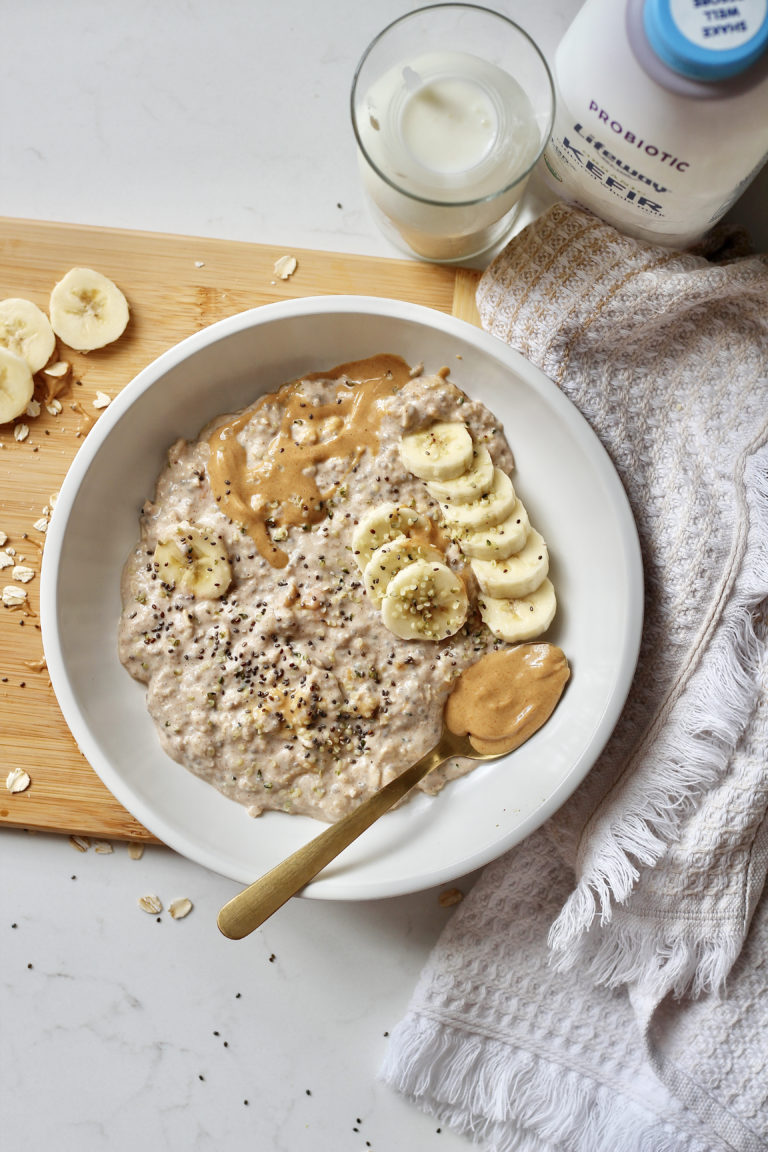
This might be my favorite way ever to make overnight oats!
3. Warm Chia Seed Oatmeal
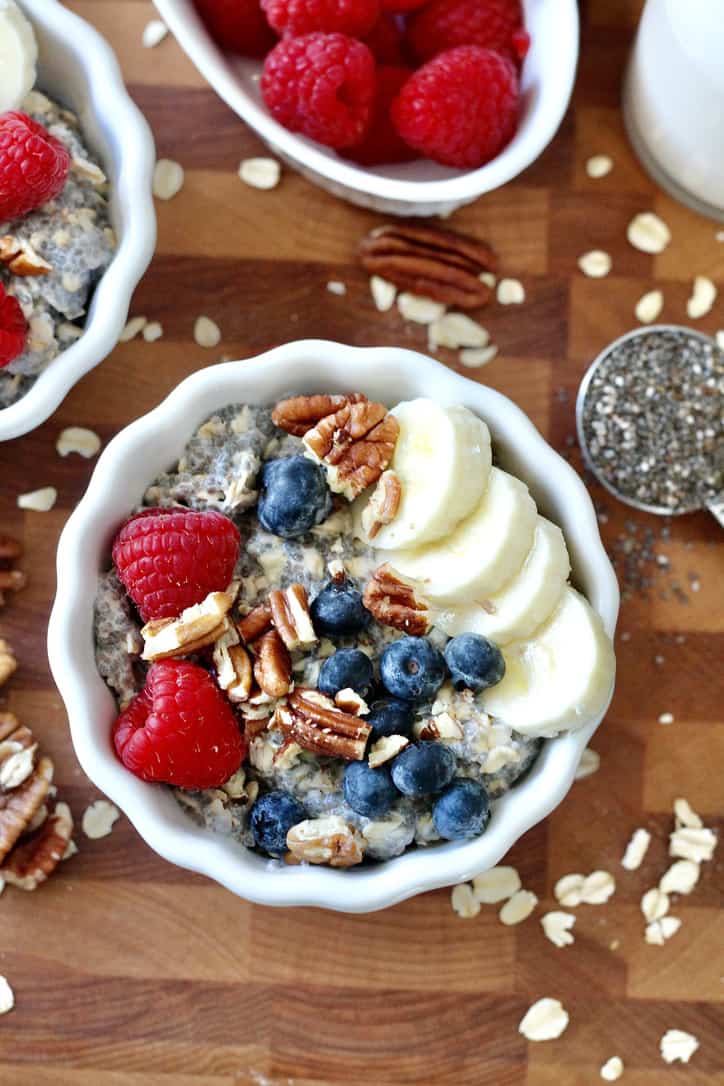
Make this recipe for chia oatmeal super quick in the microwave and you’ll have a new favorite breakfast to love!
So, is Oatmeal good for diabetes?
The answer to “is oatmeal good for diabetes” is a resounding yes! Oatmeal is good for diabetes for so many reasons we discussed. Again here’s a quick recap of the nutrition benefits of oatmeal:
- Supports blood sugar control
- Reduces cholesterol
- Helps heart health
Nutritious, delicious, and did I mention affordable? If you aren’t on the oatmeal train already, give some of the recipes above a try.
What other foods are good for diabetes?
- Are beets good for diabetes?
- Are sweet potatoes good for diabetes?
- Is peanut butter good for diabetes?
- Is pineapple good for diabetes?
